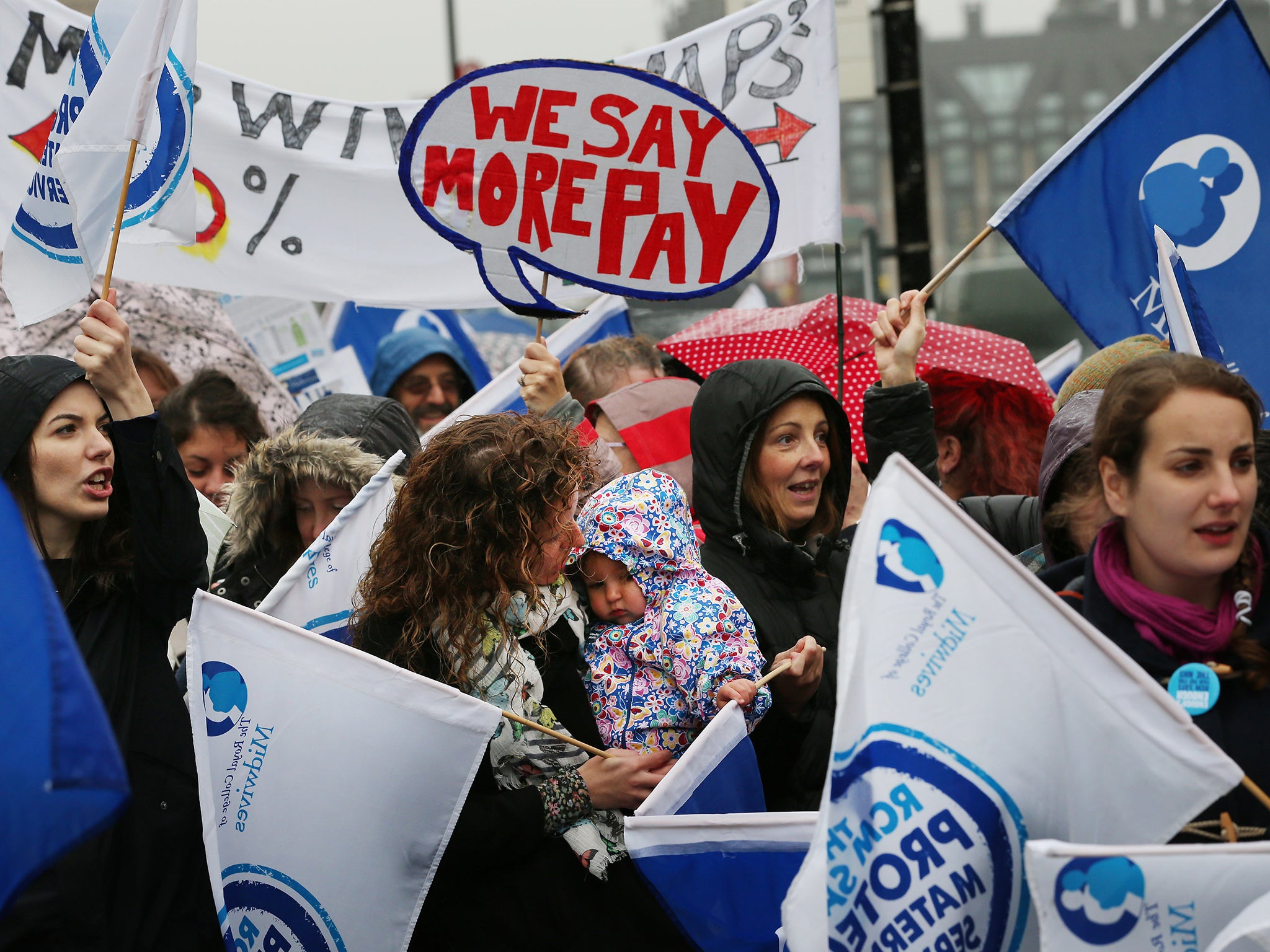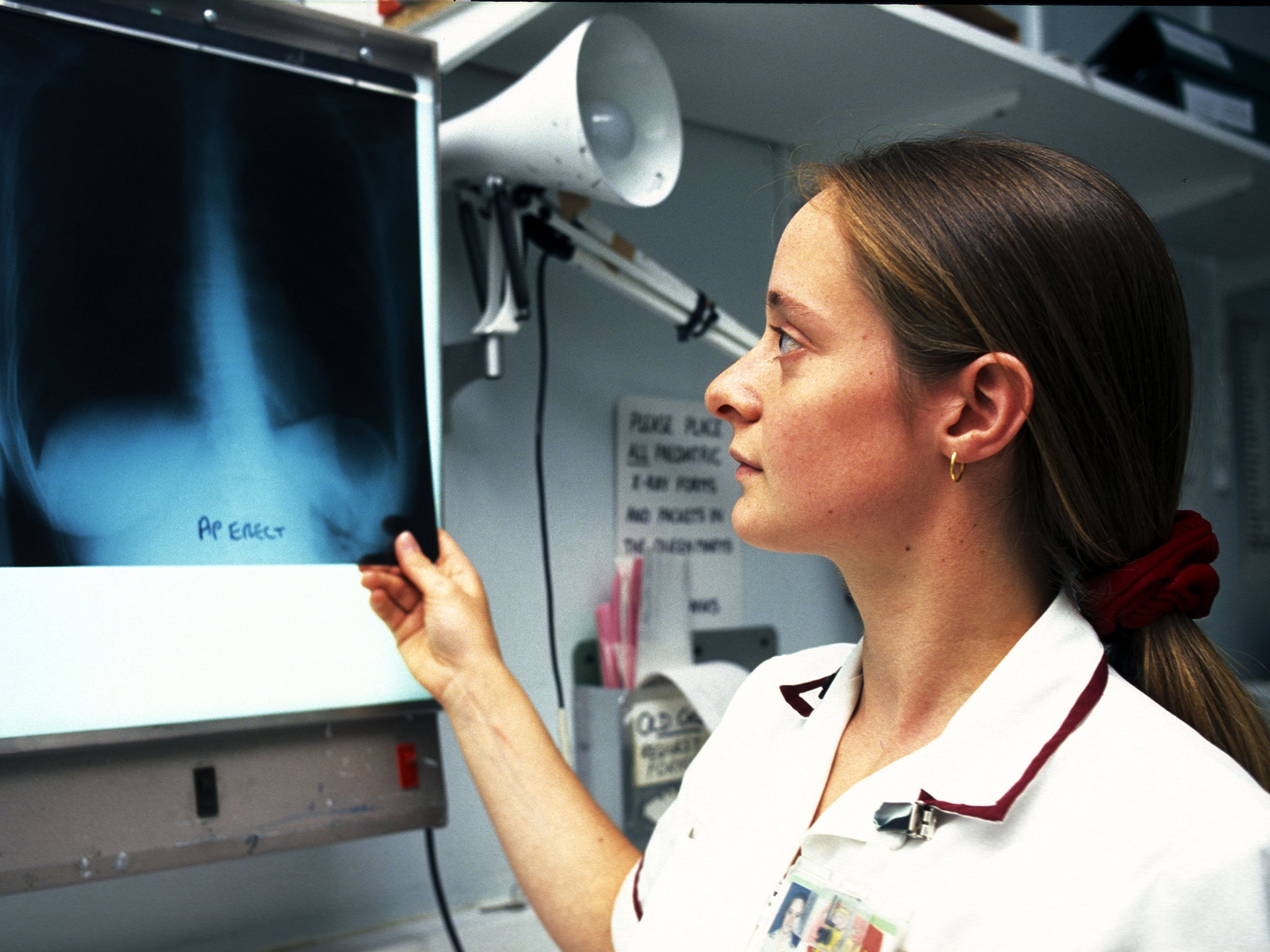NHS staff warn Government not to cut workers' out-of-hours pay as strike threat looms
The Royal College of Midwives said that the profession was “underpinned” by unsocial hours payments

NHS staff have warned the Government not to try and deliver its promise of a seven-day NHS “on the cheap” by cutting into the out-of-hours pay of frontline workers, as the Prime Minister warned of “tough decisions” ahead for the health service.
The Royal College of Midwives said that the profession was “underpinned” by unsocial hours payments, while the Society and College of Radiographers said that its members would refuse to work if any pay and conditions settlements were deemed to threaten their ability to perform procedures safely.
Although both groups said it was “premature” to threaten strike action at this stage, they said they shared concerns expressed by Dr Peter Carter, the head of the Royal College of Nursing, over evening and weekend pay for NHS workers.
In his first major speech since the General Election, David Cameron put plans for enhanced GP and hospital services in the evenings and at weekends at the heart of the Government’s new NHS strategy.
He renewed his pre-election pledge to give the NHS an extra £8bn annually by 2020, but also signalled that the £22bn in efficiency savings demanded of the health service by that date would lead to “tough decisions and tough actions”.
It is not clear how the NHS plans to save such a vast sum. While there are hopes that a new focus on prevention and care in the community will eventually lead to lower costs, many staff also fear that further pay restraint or even cuts to services will be required.
Sharing a platform with the Prime Minister, NHS England chief executive Simon Stevens said that the health service was entering “probably the most challenging period in its 67-year history” adding that he would be setting out, within two weeks, how it would “tackle” the “£22bn efficiency challenge”.
The Health Secretary, Jeremy Hunt, risked union anger by branding Dr Carter’s warning that any attacks to unsocial hours pay would be a “red line” that could lead to industrial action, “ridiculous” and accusing the country’s biggest nursing union of “grandstanding”.
The row centres on union concerns over the implications of seven-day services for out-of-hours payments for staff.
The Government has so far made no proposals on pay and conditions, and is awaiting reports on seven-day services from the independent NHS pay review bodies. However, the NHS Employers organisation, in their submission to the review, has already set out a range of proposals for cutting unsocial hours pay. One measure, estimated to save £1.1bn, proposes cutting out-of-hours rates by half and only paying them after 10pm seven days a week.

Jon Skewes, a director at the Royal College of Midwives, which went on strike for the first time in 133 years in 2014, over the Government’s refusal to grant an across-the-board one per cent pay rise to NHS staff, said that while it was too early for “threats” over new industrial action, midwives would be “incredibly angry if they were pushed into a corner” over unsocial hours pay.
“Maternity is an example of a service that is already seven days a week, 24 hours a day, 365 days a year,” he said. “Midwives are reliant on unsocial hours payments. It would seem grossly unfair to those people already providing a service like that to have money taken off them effectively, in order to extend opening hours further.”
Paul Moloney, trade union and industrial relations manager, at the Society and College of Radiographers said that “drastic action” could be taken if their members were asked to work so many shifts that they were deemed to be damaging their ability to work safely.
“The reality for radiographers is that we already have a shortage in the profession and we already have a 24/7 working arrangement with many Trusts,” he said. “Quite simply, if they took away the quite minimal additional compensation for working unsocial hours then that would be a huge problem for us. Our members would quite simply not do it.”
Join our commenting forum
Join thought-provoking conversations, follow other Independent readers and see their replies
Comments